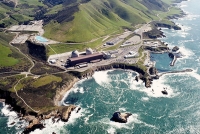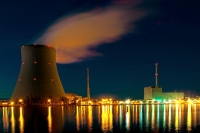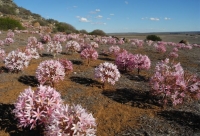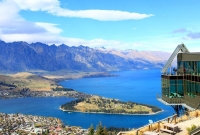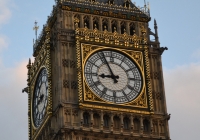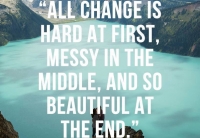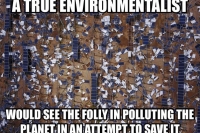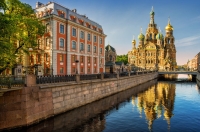
This section covers historical highlights of people in general. It exams what can be done to make the future better than the past, including how plentiful, reliable energy can help. Contributions are from people in all walks of life.
Max Roser, economist, geoscientist, philosopher, Founder and Program Director, Our World in Data: To see where we are coming from we must go far back in time. When you only consider what the world looked during our life time it is easy to make the mistake of thinking of the world as relatively static – the rich, healthy and educated parts of the world here and the poor, uneducated, sick regions there – and to falsely conclude that it always was like that and that it always will be like that. In 1950 two-thirds of the world were living in extreme poverty; in 1981 it was still 42%. In 2015 – the last year for which we currently have data – the share of the world population in extreme poverty has fallen below 10%. That is a huge achievement, for me as a researcher who focuses on growth and inequality maybe the biggest achievement of all in the last two centuries.
Michael Connolly, Ronan Connolly, Imelda Connolly, Willie Soon, Patrick Moore - Patrick has been a leader in the international environmental field for more than 30 years. He was a founding member of Greenpeace. In 1989, Michael and Imelda set up and ran the Republic of Ireland’s National Aquarium to promote awareness and interest in both the beauty and fragility of the ocean’s ecosystems. Michael and Ronan have both been actively involved in the research and development of ethical, sustainable and commercially viable methods for a) fish farming, b) reducing water pollution and c) energy conservation. Willie has dedicated his career to scientific research and has published peer-reviewed scientific papers in the fields of astronomy, astrophysics, climate science and environmentalism.
Greenpeace have successfully created a public perception that they are fighting to protect humanity, nature and the environment from the evils of corrupt industries and vested interests. As we will discuss in this report, the reality is almost exactly the opposite...
Eric Jelinski, past president of Environmentalists for Nuclear - Canada, farmer, environmentalist, university lecturer with degrees in mechanical, chemical and nuclear engineering: Depletion of soil fertility is happening just about everywhere. The UN recently reported that in about 60 harvests soil depletion will be at the point where there are not enough nutrients in the soil to feed ourselves. Shortages of food is already happening in various parts of the world. Those shortages are a threat to national security of Canada, and in fact all western countries. Sustainable development under the guidance of the UN has been a failure. That is why people cannot feed themselves, and have not built themselves the technical, social, and economic infrastructure that we have in the west. Feed somebody for forever is not a solution. Show people how to grow food so they can feed themselves is the solution. The UN represents the ‘failed nations.’ It has concocted the solution to migrate to where there is food.
Alex Alexiev, Chairman of the Center for Balkan and Black Sea Studies: There are at least three problems with renewable energy (wind and solar), which are not surmountable. First, it is intermittent i.e. not reliable. Secondly, renewable energy depends on government subsidies and is not feasible without them. Third, the efficiency of solar and wind tech, despite being heavily subsidized, is rapidly approaching the limits of physics, which means that there are no great efficiency improvements to be expected.The renewable energy emperor has no clothes and it won’t be long before everyone can see it.
Luke Baker, correspondent for Reuters World News: November 11, 2018 was the 100th anniversary of the WW I Armistice to end the most horrible war of all time. Heads of State from many countries gathered in France to mark this event as they had each year for many years in the past. There was a light rain, so one of the key leaders decided not to attend, Donald Trump of the United States. French President Emmanuel Macron delivered a very important speech explaining the difference between the evils of nationalism and the virtues of patriotism. Donald Trump calls himself a nationalist and wants to make America stand above all other countries. What does the world think? Countries who use nuclear power need to be well governed, at peace internally and with other countries.
Andrew Follett, energy and science reporter for The Daily Caller: On the first Earth Day in 1970, famous extreme environmentalists and university professors made profound predictions of global catastrophes to happen in the next 30 years. They didn't happen. Instead the world got a lot better. Heeding predictions by extreme environmentalists is a disaster for the world.
Diego Ortiz, writer for the BBC: He describes "ten simple changes to help save the planet." Most people understand that the world is much better off with fossil fuels than without them. There are some who absolutely want to get rid of fossil fuels. They (from Rome and Potsdam to Hollywood and Sacramento) say that the world can be saved with a few simple changes. For the sake of people everywhere, lets hope that clearer, smarter heads will prevail.
Homri Kharas, Deputy Director of Global Economy and Development with the Brookings Institute, USA, James Peron, president of the Moorfield Storey Institute, USA, Leon Louw, Founder of the Free Market Foundation, South Africa: We are witnessing the most rapid expansion of the middle class, as a global level, that the world has ever seen. …the vast majority—almost 90 percent—of the next billion entrants into the global middle class will be in Asia: 380 million Indians, 350 million Chinese, and 2,010 million other Asians. This growth in the Asian middle class means rapidly growing economies by 2030: “Today’s lower middle-income countries, including India, Indonesia, and Vietnam, will have middle-class markets that are $15 trillion bigger than today.”
John Shanahan, civil engineer, President of Environmentalists for Nuclear - USA: Bill Gates describes Vaclav Smil this way, "I learn more by reading Vaclav Smil than just about anyone else." Smil wrote the book, "ENERGY AND CIVILIZATION A HISTORY," It documents the tremendous, very unique contribution fossil fuels make in improving the lives of billions of people. Paul Driessen and Calvin Beissner write about eco-imperialist groups that work tirelessly to force stopping the use of fossil fuels. That would plunge the world back into poverty and suffering of the Middle Ages. In 2018, a lawsuit in the name of a few privileged American children is suing companies that extract and refine fossil fuels because the adults working behind the scenes and the children claim that the air they breath isn't good enough for them. It is time for a big change.
Meyer M. Treinkman, pharmacist. Richard McPherson, advocate for a better world through nexus of agriculture, water and energy: Some Muslim leaders have called for a boycott of everything to do with Jews. Meyer Treinkman describes what that means: avoid using medical, scientific, and technical discoveries by Jewish people. Jews have disproportionately contributed to the well being of all people around the world.


